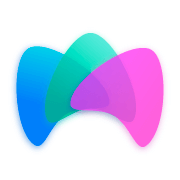
The online events and live meetings’ industry is overflowing with options, making it challenging for event managers to draw attention to their events. In this crowded marketplace, attendees can afford to be picky. Event planners who put little effort into creating memorable experiences risk being quickly overlooked.
Management Tips For Great Experience Design
Experience design, for those new to the concept, involves carefully selecting and curating every aspect of an event to enhance attendees’ enjoyment. It’s a broad field that different event planners may approach differently. However, good experience design is unmistakable when done well: it creates an atmosphere filled with anticipation and excitement, where every element seamlessly falls into place.
The specifics of experience design are different depending on the nature of your event. Here are a few top-level tips that will put you on the path to creating memorable events.
Start at registration
Good experience design begins before the event and incorporates the entire customer journey. That means having a seamless and effective event registration portal. Event registration is not only useful for collecting information about your attendees, it sets out your design statement, letting your attendees know what sort of tone and quality to expect from the event itself. All of this helps build anticipation for the event itself.
Ask pertinent questions in your event registration, and you can also use this stage to tailor your marketing and design to your attendees. For example, you might find that you have several ‘alumni’ from previous events, in which case you can factor that into your communication before the event.
Or, start at the end
If you are completely new to experience design and are feeling a little lost, one way of structuring your planning is focusing on the end of your event. The endpoint of an event is when your attendees or stakeholders get something of value from you. This is a purposefully vague definition because the end of the event is not when the last attendee leaves the venue. It could happen in a talk before then or in the bar after.
Essentially, starting at the end asks you to decide what your event is for specifically. For example, is the value in networking? Or a certain speaker? Knowing your endpoint will help you shape the orient of the experience design towards that, giving attendees a sense of anticipation and, afterward, satisfaction.
Choose the right meeting software
With more and more events happening online now, there’s more choice than ever when it comes to the software available. When planning your event, you’ll want to ensure you’re using the right software that gives you what you need, as well as the attendees.
An excellent way to choose the software is to see what your attendees already use. If most people are using MyOwnConference daily, for example, you will want to consider using that for your event. It makes it easier for them to attend, as they already know how to use it.
Also, look at the features that the software has. Does it have everything you need to run your event? For example, you may need the ability to screen share or record the event for later watching. If so, make sure your chosen software has all of these capabilities before announcing the event.
Finally, you’ll want to ensure that you’re familiar with the software before the day. Testing it out with a colleague is advised beforehand. That allows you to spot any potential problems before the event.
Take advantage of social media
Anyone planning an event now needs to have a good social media presence. That’s where many would-be guests will look you up and hope to see what you offer. So when planning your event, get set up on all the relevant channels where your audience will be, making it easy for them to find you.
Once the social media accounts are set up, ensure that you’re using them often. These are great ways to hype up your event and get more people interested in coming to it. Creating easy-to-share visuals is key here, especially for visual platforms such as Instagram. These are another great way to spread the word.
Even during the event itself, those accounts will be useful. They’re easy to spread the word about anything happening, such as a room change for a panel or a time change. So as you have those accounts, make good use of them.
Read also: What Is Remote Monitoring and Management Software? What Does It Do?
Embrace tech
The kind of people attending your event are likely those who have participated in many events. So they are familiar with the standard modus operandi. Anything you can do to surprise or innovate is likely to grab their attention, and tech is a great place to start. There are lots of ways to implement tech solutions in your experience design, so many that there is a whole industry of third-party tech providers to consult.
If you’re looking to try out experience design tech yourself, start with the event app. An event app, if done right, can be the locus point for your experience design. It should be consistent with your visual marketing elements and entirely geared towards your attendees and their needs. Most of all, however, it should work: don’t skimp on the cost by going with less reputable hosts or designers. Because a poorly-designed event app will make the whole event seem less polished.
Strive for perfection
Great experience design is so sought after because it can be challenging to achieve. It requires a lot of dedicated hard work that many event planners need to prepare for or be able to do. The bottom line is that you should strive for perfection in every element. Everything from pre-event emails to follow-up communication, from every canapé choice to each table setting, should be considered and carefully crafted. The devil is most certainly in the detail. If you get those right, then they bring the whole experience together.

Jenny Han is a professional copywriter at Top essay writing services. She specializes in all topics, from event management to content distribution. Jenny is always open to sharing her personal experience and enjoys advising beginner writers to help them uncover all the peculiarities of content that sells.











